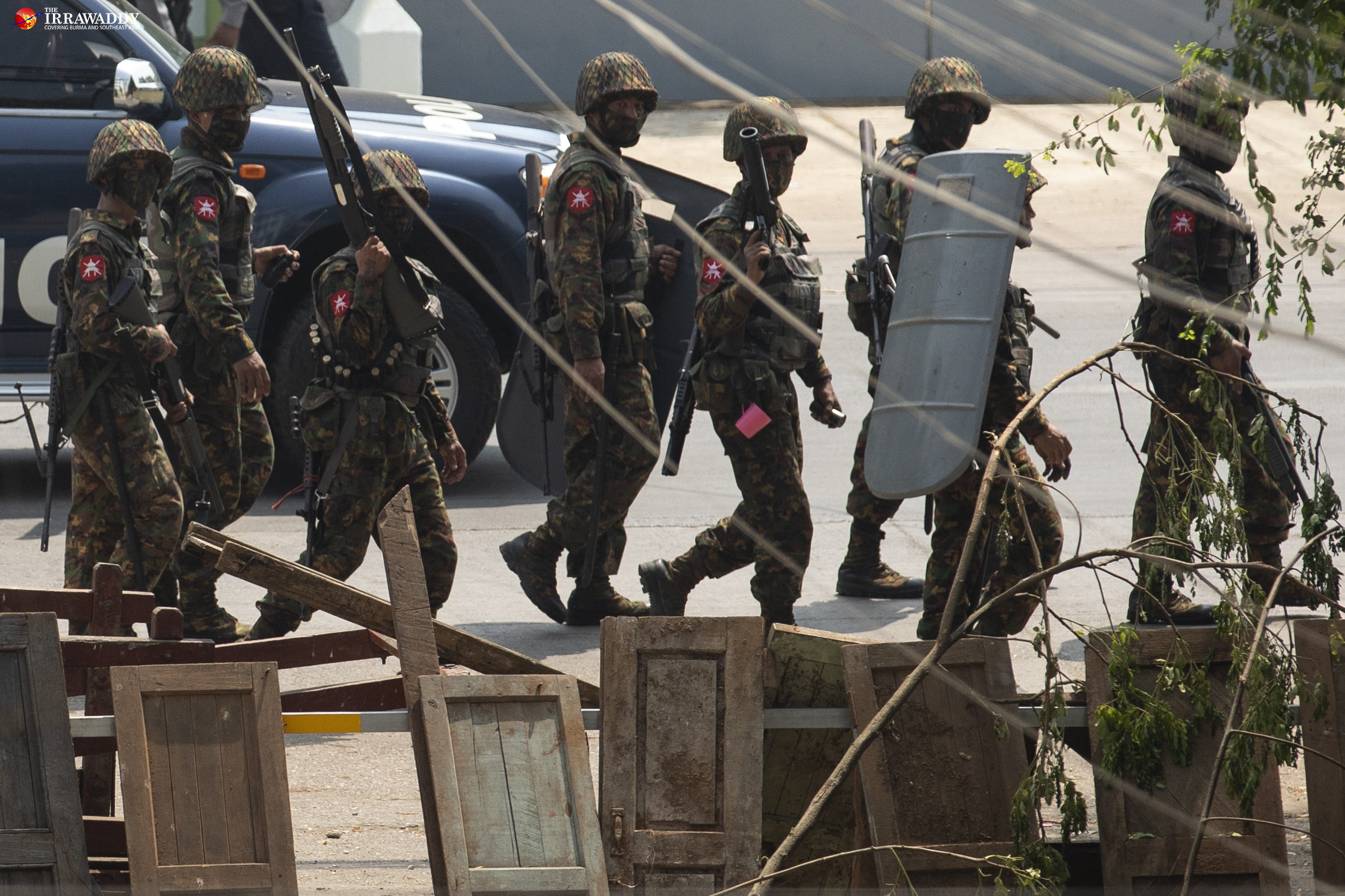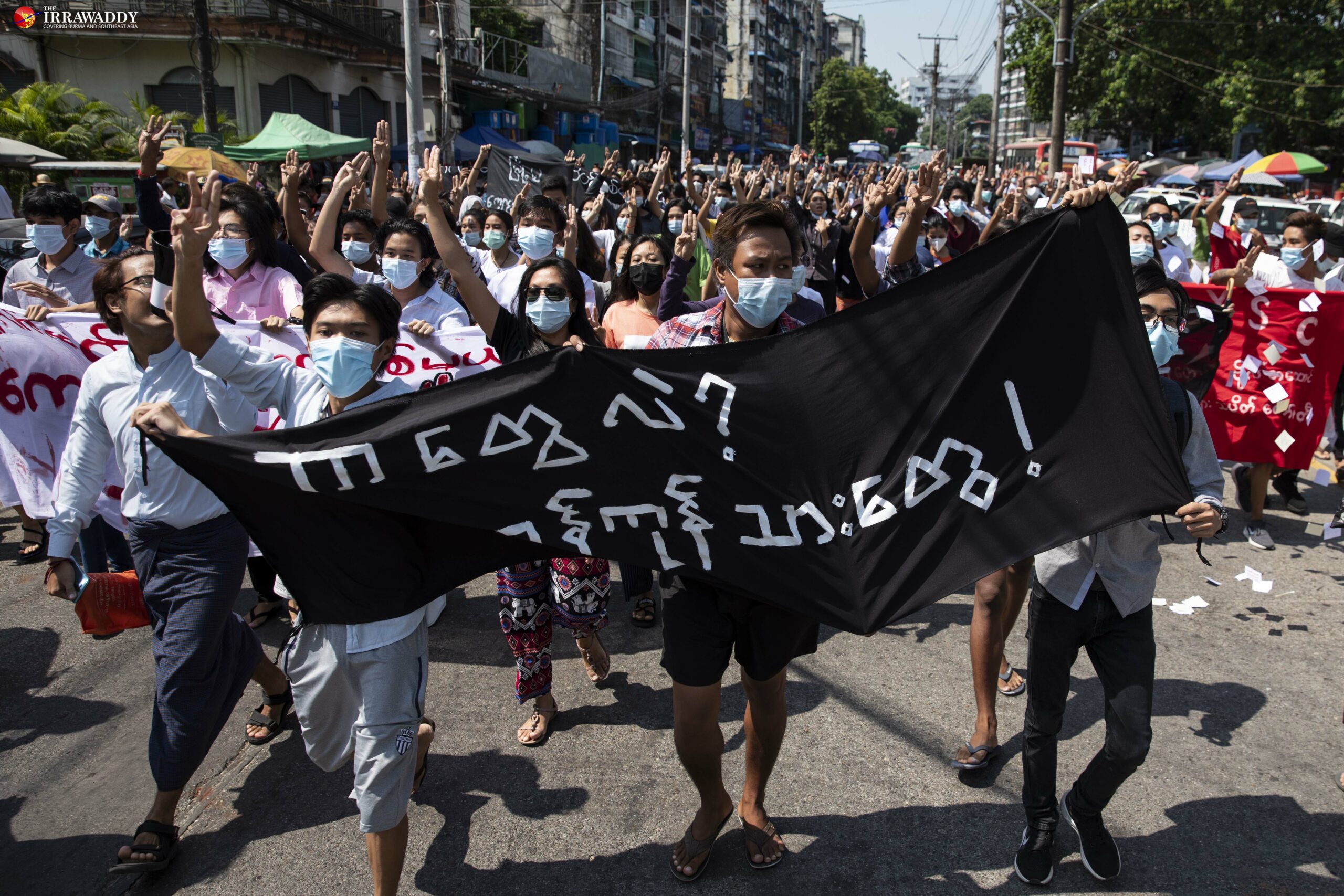The military regime that suppressed the nationwide 1988 pro-democracy uprising and staged a bloody coup in September of that year was able to consolidate its power and run the country.
Now in 2021 – six months after staging its coup – the junta known as the State Administration Council is still unable to control Myanmar. Opposition to the regime remains steadfast and strong, no matter that the junta formed a caretaker government on the weekend.
In 1988, then coup leader General Saw Maung along with General Than Shwe, General Tin Oo and General Khin Nyunt, the feared intelligence chief, were in firm control weeks after snatching power, ruling under the name the State Law and Order Restoration Council.
Just like current coup leader Senior General Min Aung Hlaing, they were brutal and murderous men, but they managed to consolidate their power and authority over the country.
Within months of the 1988 takeover, civil servants were back at work and street demonstrations had ceased, with pro-democracy activists in hiding, on the run or imprisoned by the military.
Moreover, regional commanders effectively controlled the administration and kept the country in order. Subsequently, the regime even introduced an open market economy and economic liberalization policy that attracted a flurry of foreign investors in the early 1990s.

Today, in 2021, Myanmar is teetering on the brink of becoming a failed state. The people are clear that they don’t want the return of military rule and the junta doesn’t have the power and influence to govern the country. The military behaves like barbarians, a foreign occupying force that can only deploy violence.
The junta appears to have been taken aback not just by the scale of protests, but by the ways they are organized – loose networks of young people, especially the young, tech-savvy Generation Z.
Civil servants are refusing to work for the regime. Private banks are still struggling to reopen, while several foreign companies including Telenor have left the country altogether.
A recent World Bank report said that Myanmar’s economy is forecast to shrink by 18% in the last quarter of 2021, as it grapples with the double whammy of the coronavirus pandemic and the political turmoil unleashed by the coup. The contracting economy threatens millions with poverty, joblessness and hunger. Within a year or so, millions of Myanmar citizens are likely to migrate to neighboring countries.
Looking at Myanmar today, the country’s trajectory is alarming. The country is going through a severe economic, social and political crisis, the worst since independence in 1948. The coup has had a catastrophic effect, including prompting a boom in illicit trade and drug production in eastern Myanmar’s Shan State.
At the same time, armed uprisings are spreading in both the countryside and cities. Targeted assassinations, bombings and the killing of regime officials and informants continue. The military is unable to crush this rebellion.

In the ethnic areas of the country, some of the heaviest fighting has raged in Chin and Kayah states, which have not seen any widespread insurgencies for decades. New armed rebellions have spread to Sagaing and Magwe regions, just as they did in the British colonial era, with frequent attacks on military outposts in recent months.
Unlike the ethnic armed organizations that have been fighting for self-determination and autonomy for decades, these civilian resistance fighters are not equipped with automatic rifles but with hunting guns, homemade weapons and bombs. Nevertheless, this new type of rebellion poses a serious threat to the regime
The promise of the ‘caretaker government’ to hold elections in two years from now is not realistic. Just like in the past, the military will only hold elections and re-open the country when they feel that, as in 2010, they can control a military-guided transition to a new government.
It is doubtful that coup leader Sen. Gen. Min Aung Hlaing believes he will be able to hold a general election in 2023. Why? The junta have burned all their bridges. They have grabbed the tiger’s tail and now they cannot let go.
Even if there is an election in the future, the regime is determined to prevent the National League for Democracy, which won the 2015 and 2020 elections, and ousted civilian leader Daw Aung San Suu Kyi from taking part.
For now, the coup is still incomplete and facing strong opposition from the people, while most of the international community do not recognize the regime as the legitimate government of Myanmar.
The struggle for the future of the country will be long and protracted and requires both regional and international intervention.
You may also like these stories:
COVID-19 Unmasks Myanmar Regime’s Callousness and Incompetence
Civilian Killed by Myanmar Military Artillery Strike
Myanmar Architect Who Designed Daw Aung San Suu Kyi’s Mother’s Mausoleum Dies

















